Whether you're new to creatine, are considering adding it to your supplement regimen, or have been led to believe it's only for athletes and bodybuilders, you may be surprised to learn that:
- Many people are creatine deficient—some much more than others.
- Unless you’re currently supplementing with creatine, your energy metabolism isn’t as good as it could be.
- Although a creatine deficiency isn’t known to pose any serious health risks, balancing your creatine levels can help you achieve your health and fitness goals.
As it turns out, creatine is much more fundamental than most people know.
In this article, you'll learn exactly what creatine is, why you should probably be taking creatine no matter who you are or what your health and fitness goals are, and the body and mind benefits of supplementing with creatine.
What Is Creatine?
Creatine is a naturally occurring molecule primarily stored in your muscle cells, waiting to be used as fuel.
Unlike glycogen and oxygen, it can supply readily-available energy on short notice.
Think of creatine as an afternoon espresso shot for your cells—excellent at giving you quick boost of energy (but so much more).
Creatine is one of the most researched and clinically-backed supplements, boasting a lead role in over 50,000 studies.
The large body of research highlights mainly exercise and performance benefits, such as:
- Power output
- Muscle strength
- Athletic recovery
- Lean muscle mass
- Exercise performance
- Prevention of age-related muscle loss
In addition to exercise and performance benefits, creatine also benefits the brain, as it has been shown to improve cognition.
Why You Probably Need More Creatine
Each day, some of your body’s creatine stores are broken down and excreted during energy production. These losses must be offset by dietary or supplemental creatine.
Daily creatine requirements range from 2 to 3 g depending on size, gender, and activity levels.¹
However, the average adult in the U.S. consumes just 1 g per day for men and 0.7 g per day for women. (Although more recent studies suggest those numbers are probably closer to 0.35.)²
In other words, getting enough creatine is incredibly tricky to do without supplementation, and the average person is likely well below their daily creatine requirement.
And this is just for baseline maintenance.
For optimal energy and performance, most studies show you need at least 5 g of creatine per day.
That’s well over five times the amount most of us are getting in our diets!
The good news is that a creatine deficit doesn’t necessarily compromise your health as vitamin or mineral deficiency might.
It just means that you’re functioning at a fraction of your full potential.
The Benefits of Creatine
Both in the short-term and as you age, creatine can support your health goals in some very profound ways.
Here are three of the top three ways creatine can support your body and mind:
1. Enhanced Performance and Muscle Strength
A recent meta-analysis showed impressive results from creatine monohydrate supplementation combined with resistance training.³
Subjects taking creatine improved:
- Muscle strength by 20% (compared to 12% with placebo)
- Weightlifting performance by 26% (compared to 12% with placebo)
- Bench press performance by up to 43% (compared to 16% with placebo)
Because of its ability to supply energy to muscles during exercise and higher intensity activities, creatine can also support performance in moderately active people.
2. Better Cognition for Plant-Based Eaters
Because animal products are the primary dietary source of creatine, both vegetarians and vegans have lower creatine levels than those who eat meat.⁴
A double-blind, placebo-controlled trial on vegetarians found that six weeks of creatine monohydrate supplementation (five grams per day) had a significant positive effect on working memory and intelligence.⁵
Another double-blind study on young adult females showed that 20 grams of creatine supplementation over five days improved memory in vegetarians to an even greater extent than omnivores.⁶
3. Prevention of Age-Related Muscle Loss in Older Adults
Aging naturally leads to decreases in muscle mass, bone density, and strength. However, there is evidence that creatine supplementation positively affects these age-related changes.
One study showed that creatine supplementation led to increased body mass, enhanced fatigue resistance, increased muscle strength, and improved daily living activities for older adults.⁷
Another double-blind placebo-controlled study on healthy, older women showed improvements in strength and performance when creatine supplementation was combined with a 12-week resistance training program.⁸ The creatine group also gained significantly more fat-free mass and muscle mass than the non-creatine group.
How to Choose the Best Creatine Supplement
There is a vast array of different forms of creatine to choose from, but not all suppliers use the same quality of raw materials or follow the same manufacturing standards.
Here’s what you need to know:
Creatine monohydrate is hands-down the best form of creatine available because it has the most significant amount of scientific support as well as superior bioavailability and absorption.
However, not all creatine monohydrate supplements are created equally. Consider the following when shopping for creatine monohydrate:
- Avoid fillers or additives. Additional ingredients are unnecessary.
- Ensure vegan sourcing for vegans and vegetarians.
- Check the quality of the raw materials and manufacturing standards.
Additionally, look for the Creapure® logo.
Creapure® is one of the purest, highest quality forms of creatine monohydrate available on the market—the "gold standard" of creatine.
- Quality You Can Trust - Creapure® is produced in Germany using the purest raw materials, stringent manufacturing standards, and precise analytical control.
- Regularly Tested for Purity - Creapure® is on the Cologne List® and is tested for purity and banned substances regularly. By using only products of the Cologne List®, athletes reduce the risk of unintentionally becoming the victims of doping.
- Backed by Research - Compared to other creatine types, Creapure® has received the greatest amount of scientific study. It’s proven to be both safe for long-term use and incredibly effective.
- Superior Bioavailability - Creapure® is absorbed almost immediately after intake, with a bioavailability of over 95%. This means virtually all of the creatine you consume is used directly to fuel your body. No excess or waste.
- Vegan - Creapure® is vegan and vegetarian friendly, making it an ideal option for plant-based eaters to get creatine’s cognitive and performance benefits without consuming animal products.
Made with 100% Creapure®, Kion Creatine is the purest creatine monohydrate available, and is always:
- Produced using the purest raw materials, stringent manufacturing standards, and precise analytical control.
- Regularly tested for purity and banned substances.
- Heavily researched and proven to be both safe for long-term use and incredibly effective.
- Highly bioavailable (over 95%), meaning virtually all of the Kion Creatine you consume is used directly to fuel your body. No excess or waste.
- Vegan- and vegetarian-friendly, Kosher and Halal Certified, and free of gluten and soy products.
Summary
The most important takeaway from this article is that most people are operating in a creatine deficit and could benefit from creatine supplementation.
Supplementing with creatine can improve exercise performance, accelerate the attainment of health and fitness goals, enhance cognition, and mitigate age-related loss of muscle mass, strength, and function.
Other important pieces to remember:
- Creatine fuels your muscles, brain, and organs and is especially important during exercise.
- Re-establishing a creatine balance is extremely difficult and impractical without supplementation.
- Active adults, vegans and vegetarians, and aging adults have the most to gain from creatine supplementation, considering that they are among those who live with the largest deficits.
- The best form of creatine is creatine monohydrate.
- When considering different brands, pay special attention to sourcing, raw material quality, and manufacturing standards.
The gold standard of creatine.
GET YOUR KION CREATINEScientific Research
- https://jissn.biomedcentral.com/articles/10.1186/s12970-017-0173-z
- https://www.nature.com/articles/s41398-020-0741-x
- https://www.ncbi.nlm.nih.gov/pubmed/14636102
- https://www.ncbi.nlm.nih.gov/pubmed/2758659
- https://www.ncbi.nlm.nih.gov/pubmed/14561278
- https://www.ncbi.nlm.nih.gov/pubmed/21118604
- https://www.ncbi.nlm.nih.gov/pubmed/21394604
- https://www.ncbi.nlm.nih.gov/pubmed/23053133
* These statements have not been evaluated by the Food and Drug Administration. This product is not intended to diagnose, treat, cure, or prevent any disease.
© 2022 Kion. All rights reserved.



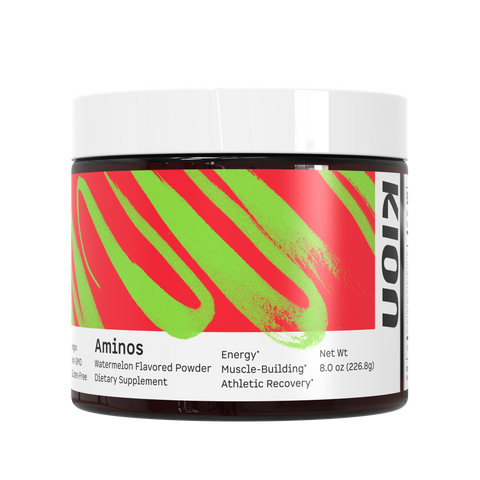
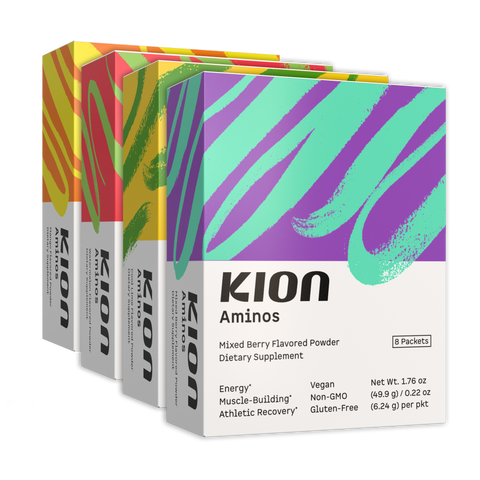
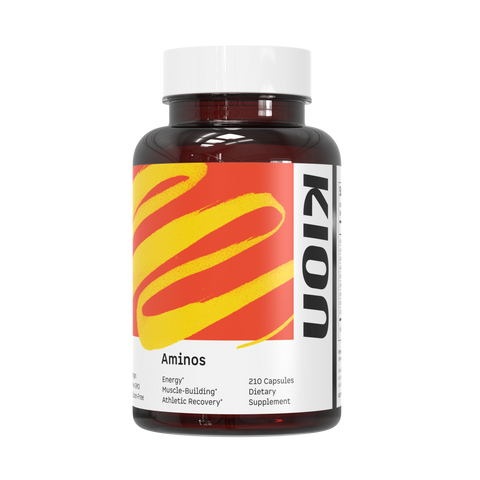
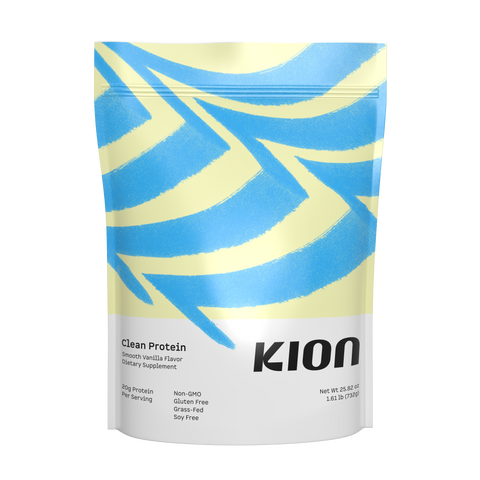
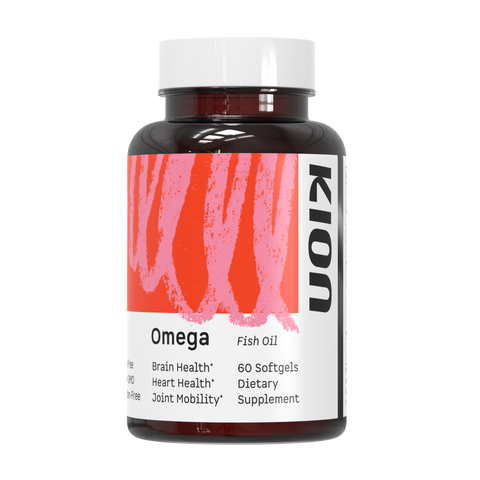
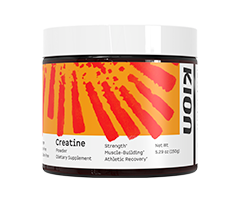
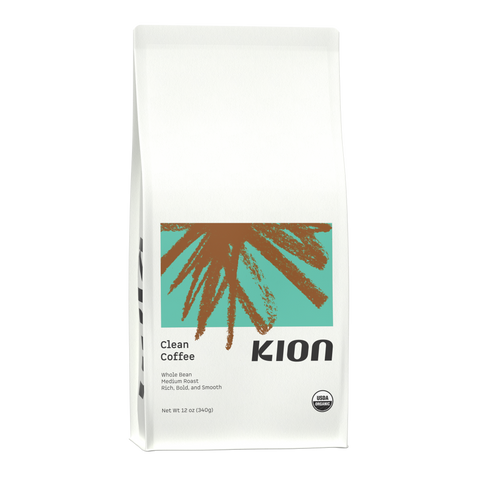
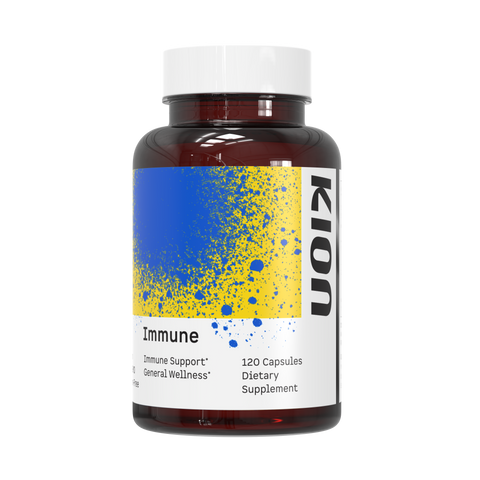
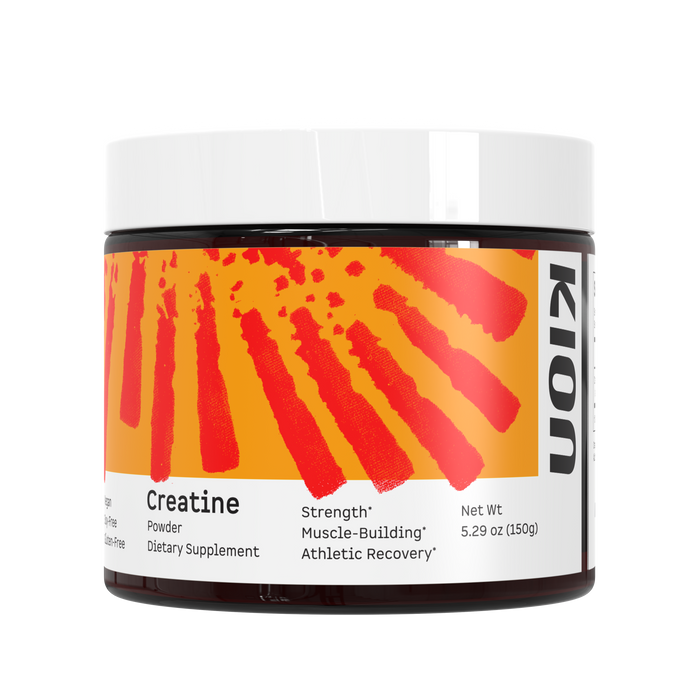
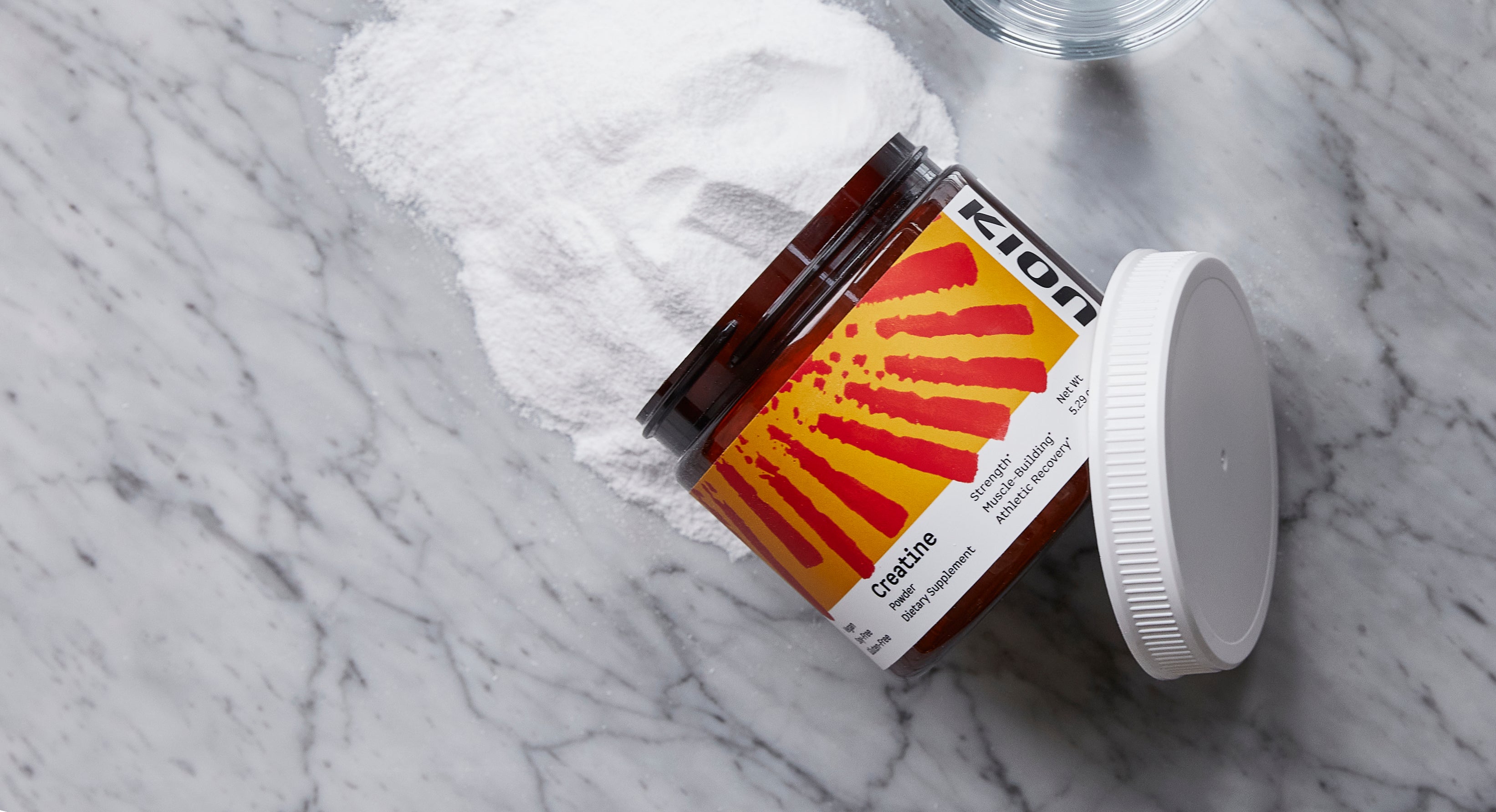



Comments
I’m confused, if creatine can only be sourced from animal products , why would vegans and vegetarians consume creatine?
———
Kion replied:
Vegans and vegetarians are often in higher need of supplemental creatine than are omnivores, do to the inability to obtain it from dietary sources. Nearly all supplemental creatine is produced synthetically, not from animal products, making it suitable for these diets.
John Forrest on
When is it best to take creatine and amino acids? Got both and don’t know if it’s best to have them together or separate and when is best for each; on workout days and non workout days. Thank you!
———
Kion replied:
As for combining Creatine with Kion Aminos, they absolutely can be taken together! We highly recommend creatine be taken daily as a point of “saturation” must be maintained to see the vast majority of the benefits. We also highly recommend Kion Aminos be consumed daily, regardless of activity level. They can be used anytime you find convenient, even with meals. On exercise days, they are most effective when taken in close proximity to your workout (ideally within 30 min before.)
Mary Ann May on
is Creatine pregnancy/breastfeeding safe?
———
Kion replied:
Unfortunately this is one of those questions that cannot be answered in an absolute.
Some camps highlight benefits such as production of more human milk, better mood and cognitive function, ease in recovering from childbirth and the best way to avoid creatine deficiency syndromes. However, it is very important to recognize that comprehensive research is yet to be done in order to have a concrete understanding of the effects of creatine supplementation on lactation, and indeed what a proper dosage may be.
Given this lack of thorough understanding, supplementing with creatine while breastfeeding is not something that we can either condone or discourage. As always, we highly recommend consulting a physician if you are interested in starting supplementation.
Julia B on
What abt creatine hcl
This better for cutting or negligible?
———
Kion replied:
In reference to muscular retention of water, very little evidence exists to suggest a notable difference across the various forms of creatine.
Anonymous on